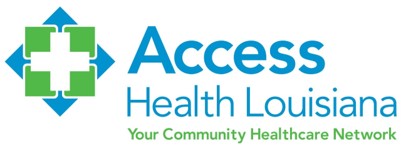MAY 30, 2023

Background
A few years ago, AHL noticed that their Healthcare Effectiveness Data and Information Set (HEDIS) measure performance was consistently lower than expected, which was impacting their financial gains on their value-based contracts. For example, despite performing well on the Health Center Program Uniform Data System (UDS) measure for diabetes control, they failed to meet their target for the equivalent HEDIS measure.
Unlike UDS measures, HEDIS and other claims-based measures imposed by payor contracts are typically calculated based on all patients who are attributed (or “assigned”) to a provider group, including some patients with no prior visit. AHL discovered that only 3 – 25% of their attributed patients had a visit at AHL in the prior year, depending on the contract. The vast majority of their attributed patients were either overdue for a visit or had never been seen by an AHL provider, resulting in poorer HEDIS measure performance.
“If more people would understand how important attribution is fundamentally, they would be screaming right now.”
Lee Reilly, Director of Value-Based Contracting and Network Performance, AHL
After that discovery, AHL focused their attention on their attribution panels and established a process to proactively monitor and manage the attribution data provided by the MCOs and other contracted payors. To track their progress, AHL continued to calculate the percentage of their attributed patients with an AHL visit in the past year, which they refer to as their “match rate.” By 2019, their match rate increased to 25% – 46%, a significant improvement but still far below their goal of ~70%, especially given the amount of effort already dedicated to this issue. This was just the beginning of a long and ongoing journey to improve attribution.
Based on AHL’s experience, it was clear that effective attribution panel management required significant manual effort from multiple staff on an ongoing basis. Every quarter, AHL had to log into at least 5 separate payor portals to download the updated attribution lists from each payor. Since each list is in a different format and contains a slightly different set of data elements, AHL had to manually adjust each list every quarter to follow a common format before merging them into a single file. As a large FQHC network with a rapidly growing value-based care program and budget, AHL was able to prioritize these activities, but they recognized that most health centers did not have the time or resources required to do this work.
Access Health Louisiana (AHL) is a network of Federally Qualified Health Centers (FQHCs) with 34 locations across Southern and Central Louisiana, including school-based health centers and behavioral health centers. They serve 50,000+ patients with ~200,000 annual encounters.
The Approach
AHL became steadfast advocates for improvements to attribution processes and easing the burden on providers. In response to AHL’s encouragement, PelEX worked with Louisiana Medicaid to expand an existing data sharing relationship, which was focused on Medicaid enrollment data, to include attribution data. In 2022, PelEX started receiving weekly attribution files for all MCO plans and developed a new suite of services to help PelEX participants get easy access to the data, manage their attribution panels, and track their “match rate” over time.
AHL has leveraged PelEX’s MCO Attribution Services to streamline their attribution management processes and workflows across several functional areas:
- Data management: Every couple of months, AHL exports the list of attributed patients from PelEX’s MCO Attribution Report into an Excel file. The attributed patient list is imported into their EHR, Athenahealth, which allows them to update the custom field they created to track patient attribution status. For attributed patients without a prior relationship with AHL, a “shell” record is created to store their demographic data and generate an MRN.
- Patient engagement: AHL proactively outreaches attributed patients who are overdue for well visits. Additionally, AHL developed detailed instructions for patients on how to change their attributed provider if desired. While AHL front desk staff are scheduling appointments or checking patients in for a visit, they check each patient’s attribution status in Athena and offer those instructions to non-attributed patients who wish to make AHL their attributed provider. Another custom field was created in Athena for staff to track when patients received the instructions.
- MCO plan engagement: During monthly MCO meetings, AHL uses the PelEX MCO Attribution Report to facilitate discussion around attribution data trends or issues. For example, the report helped AHL uncover some patients who were attributed to AHL but did not live near any AHL sites and had no prior relationship with AHL. They exported the list of impacted patients and shared it with the MCOs so they could be reassigned to another provider in the appropriate region.
- Optimized PelEX data services: To maintain their focus on their attributed patients, AHL takes advantage of PelEX’s flexible configuration options. They opt to receive hospital encounter data on their attributed patients only, including those who haven’t previously received care at AHL.
“Now there is more of a movement… It’s not just an [AHL] issue.”
Chatrian Kanger, Senior Vice President of Population Health, AHL
The Impact
AHL built a strong team and solid foundation to tackle their attribution challenges. PelEX’s MCO Attribution Services helped them build on and streamline those efforts to create lasting impact. Although it is too early to measure, AHL expects to see a substantial improvement in their “match rate” across their Medicaid MCO contracts in the coming months and years. In addition, AHL has already observed several positive changes:
AHL has significantly reduced the number of analyst hours spent on manual data management. Instead of spending 4-5 hours logging into multiple portals and compiling the files manually, they can easily access their attribution data for all MCO plans in one place.
AHL has greater confidence and trust in the attribution data for two main reasons. First, since PelEX receives and shares updated attribution data on a weekly basis, AHL has access to much more up-to-date information. Second, AHL reported feeling reassured that the data goes through a third-party validation process with a neutral entity, which lends credibility.
AHL observed that PelEX’s MCO Attribution Services have helped raise awareness of the importance of attribution and allowed more health centers to “dig into their data” and start working on this. They view this as a sign of progress toward a more aligned system in which providers are empowered to work together with the MCO plans to be successful in value-based care.

